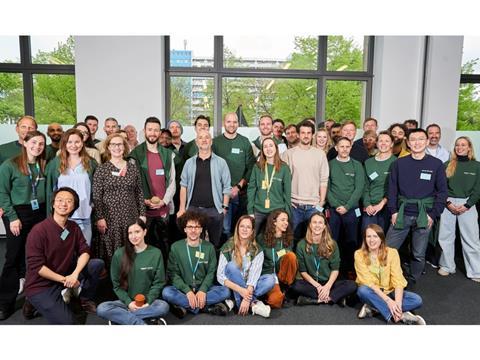
The Amazon Sustainability Accelerator has opened for applications from European climate-tech startups focused on building businesses in consumer products, circular economy, energy in buildings, and packaging.
Run in partnership with climate innovation agency EIT Climate-KIC and strategy consultants Founders Intelligence, the Amazon Sustainability Accelerator equips entrepreneurs with the skills and opportunities to grow their business and positively impact the environment. Since launching in 2022, the Accelerator has supported more than 25 start-ups across the UK and Europe, provided over US $1 million in grants and credits, and helped those businesses increase sales by 700% and raise over €18.7 million to date.
In the startup categories, for consumer products Amazon says it is looking for early-stage start-ups developing physical consumer products that have recently launched or are on the cusp of go-to-market. For the circular economy, it highlights start-ups building solutions to extend the lifetime of products through methods such as reverse logistics and repair capabilities accessible to end users.
For the energy in buildings, it suggests start-ups focused on helping buildings to decarbonise through AI and cutting-edge materials, and for packaging, start-ups creating packaging materials, closed-loop reusable systems technology and more.
The deadline for applications for the first cohort focused on the circular economy, energy in buildings, and packaging is 5th April 2024 and successful applicants will be announced in the spring. The deadline for the second cohort focused on consumer products is 31st July 2024, with successful applicants announced in the autumn.
Start-ups can apply online in the UK, Spain, Germany, Italy, France, and the Netherlands.
Last month, Circular Valley announced its Circular Economy Accelerator funding programme, set to reward fifteen start-ups working in raw materials, chemical recycling, and the value chain with networking opportunities. The company is looking for companies bringing together individual players in the value chain and uplifting them as a collective, specifying that they should have developed programmes that inform companies what is in a product, where the materials are located, and how they can be obtained.
In January, Paptic revealed it closed €27.5 million in growth financing, including investments from the UB Forest Industry Green Growth Fund (UB FIGG), Emerald Technology Ventures, SIG InnoVentures, and EIC Fund towards the end of 2023. Upon the first closing of the two-part growth financing, Paptic had raised a total of €23 million. The second round was led by UB Figg and, once it had been closed, a further €4.5 million had been raised. With the estimated size of the international flexible packaging market reaching €200 billion annually and 70% of flexible materials currently used being plastics, Paptic hopes to implement its materials in light of forecasts suggesting that economic and population growth will continue to increase the amount of packaging produced.
If you liked this story, you might also enjoy:
The Brief: How viable is biorecycling for plastics?
Report: How the top brands are progressing on packaging sustainability
The Brief: Using ocean-bound plastic in packaging – how, why and should we?














No comments yet